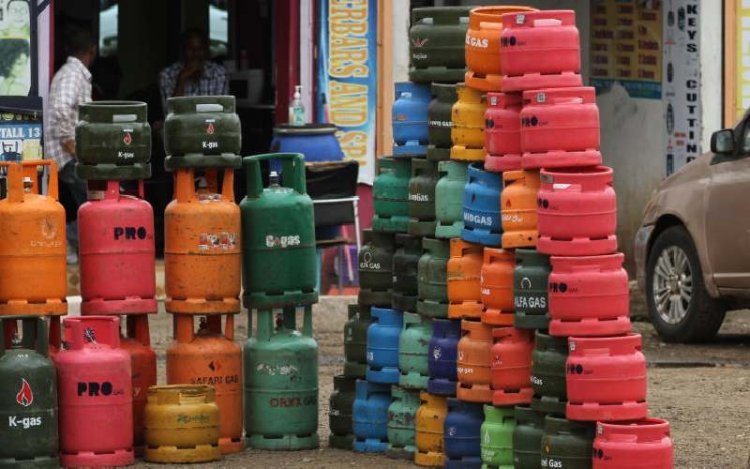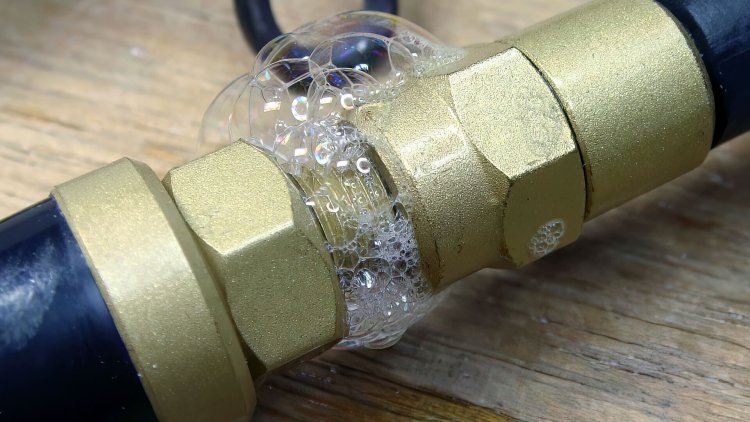Using Soap Water: 4 Hacks For Checking Fake LPG Gas Cylinders- EPRA
EPRA released its guidelines while emphasizing the importance of detecting the dangers that are associated with using fake gas.

The Energy and Petroleum Regulatory Authority (EPRA) has intervened in response to increasing complaints of counterfeit (Liquified Petroleum Gas) LPG cooking gas cylinders being sold in the black market at a rising rate.
Through a video advisory released on Friday, January 5, EPRA released its guidelines while emphasizing the importance of detecting the dangers that are associated with using fake gas.
The authority first of all advised Kenyans to purchase LPG cylinders only from licensed sellers.
Furthermore, it is important that during delivery, one should check for the company seal and safety cap. Cylinders with broken safety caps or lacking seals should not be accepted, as they may show that you may be sold counterfeit gas.
Given the large black market out there, it is possible to get a counterfeit LPG cylinder delivered to you. When buying a cylinder, check out these features to see if it's genuine.
For more information, contact us through email>info@epra.go.ke. or call us on 0709336000… pic.twitter.com/o3VWKy13jE — Energy and Petroleum Regulatory Authority (@EPRA_Ke) January 5, 2024
EPRA also advised that you check the due date of testing, marked on the inner side of the cylinder stay plate. Consumers are urged not to accept cylinders if the due date has expired and ensure that they receive gas cylinders that adhere to safety standards.
"Given the large black market out there, getting a counterfeit LPG cylinder delivered to you is possible. When buying a cylinder, check out these features to see if it's genuine.
"Please look for the due date of testing, which is marked on the inner side of the cylinder stay plate. Do not accept the cylinder if the due date is over," EPRA advised.
Sometimes, the dates are usually coded with the year and month. The months could be represented by the letter A-D, which is representative of the first quarter and the numbers usually represent the year.
For example, an A24 means that the cylinder is due for testing by the first quarter (January-March) 2024.
A hack that Kenyans can use is applying soapy solutions that include soap water to the joints of the gas cylinder to check for potential leaks. Should there be a gas leak, bubbles will appear after applying the soap solution, indicating a potential hazard.
Furthermore, the same method can be used to check for leaks in pipes that connect a gas cylinder to a cooker.
EPRA also strongly warned against the use of open flames to detect leaks as an important part of safety precautions.
Counterfeit LPG poses a significant threat, as it may contain impurities or be of substandard quality, increasing the risk of leakage, explosions, or fires. One of the primary risks associated with counterfeit LPG is its potential to burn inefficiently.
Unlike genuine gas, counterfeit LPG can lead to uneven cooking, incomplete combustion, and wasted energy. This not only impacts the cooking experience but also raises concerns about the overall safety and efficiency of gas appliances.
Moreover, counterfeit LPG may not adhere to environmental standards, releasing harmful emissions that contribute to air pollution.
The consequences of using such gas extend beyond individual safety to environmental concerns, highlighting the urgent need for awareness and vigilance among LPG users.
EPRA noted that in case of any concerns, they can be reached through the number 0709336000.
On March 2, 2023, President William Ruto turned his guns on unscrupulous individuals swindling Kenyans through cooking gas, warning them that their days are numbered after he exposed how they cheat their customers by taking advantage of the directive, by refilling gas cylinders to less than the required full amount.


 admin
admin 




